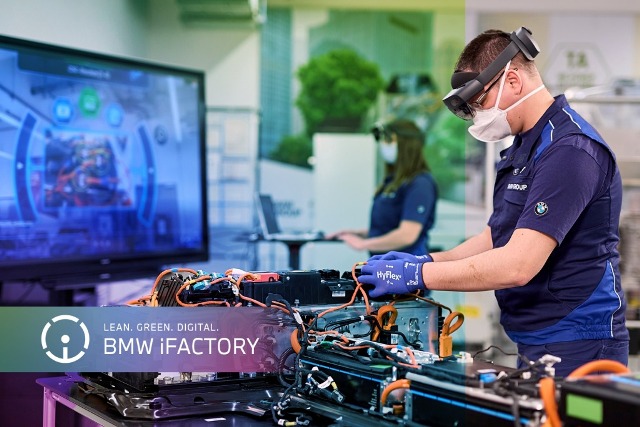BMW Group has unveiled plans to allocate 650 million euros ($711 million) for the transformation of its primary Munich facility into a production hub exclusively dedicated to electric vehicles (EVs) by the end of 2027. This strategic move marks a significant milestone in the automotive giant’s transition toward the electric era.
“Last year alone, six all-electric models went into production. At the same time, we also set a production record, proving that we are simultaneously able to both deliver and shape the future in our production network,” Milan Nedeljkovic, Member of the Board of Management of BMW AG, Production, said in a news statement.
The transformation initiative encompasses the establishment of four new buildings, notably featuring a state-of-the-art vehicle assembly line and body shop. As part of this shift, traditional engine manufacturing operations have been relocated to facilities in Great Britain and Austria, with 1,200 employees either retrained for new roles or transferred to other company locations.
Unlike several other automotive manufacturers, BMW has refrained from setting a definitive target for the cessation of combustion engine car production. However, the company is encountering European Union regulations that effectively mandate the prohibition of new petrol and diesel car sales within the bloc by 2035.
In 2023, all-electric vehicles accounted for 15 percent of BMW’s total sales in Munich. The carmaker anticipates this proportion to escalate to one-third by 2026, underscoring its commitment to ramping up the adoption of electric mobility solutions.
Despite BMW’s aggressive strides, carmakers like Mercedes-Benz and Volkswagen have cautioned that the pace of EV sales growth has not matched earlier projections. Economic constraints on consumers, coupled with the gradual alleviation of supply chain bottlenecks that had previously hampered production, have contributed to this scenario, Reuters news report said.
BMW had introduced a glimpse of its ‘Neue Klasse’ during the IAA car show in September, representing a multi-billion euro endeavor aimed at bridging the technological gap with rivals such as Tesla and other EV manufacturers. The vehicle, roughly similar in size to the carmaker’s popular 3-series model line, is scheduled for production at the Munich plant starting from 2026, running concurrently with the manufacturing of combustion engine cars.
Additionally, BMW intends to produce the ‘Neue Klasse’ at its upcoming facility in Debrecen, Hungary, along with manufacturing sites in Shenyang, China, and San Luis Potosi, Mexico, as part of its global production strategy.

